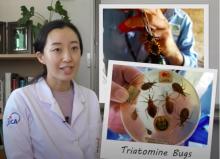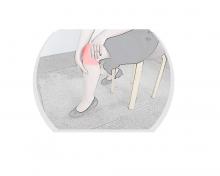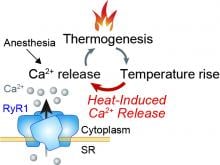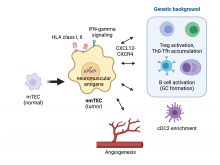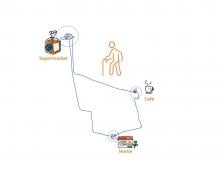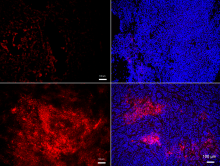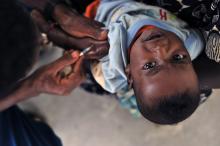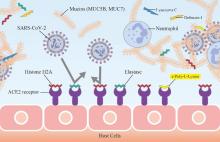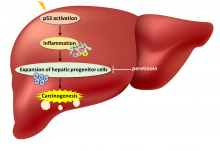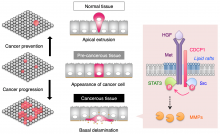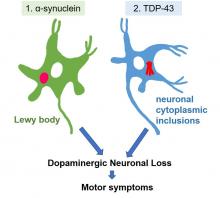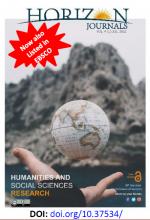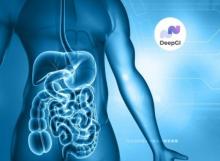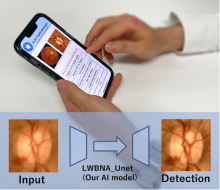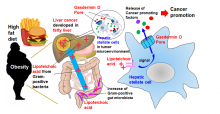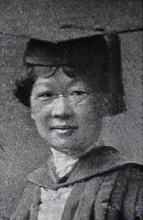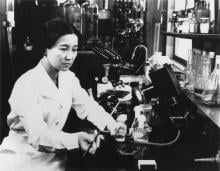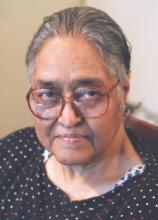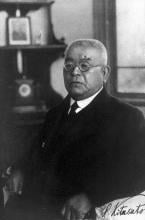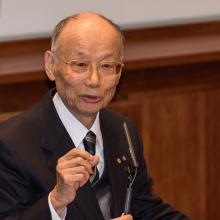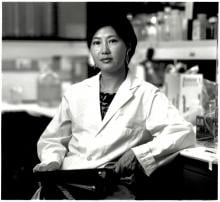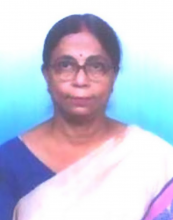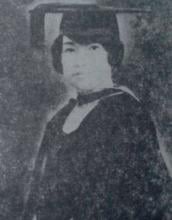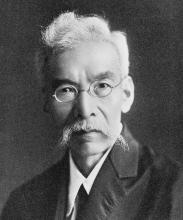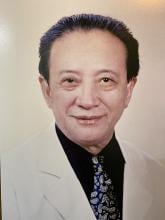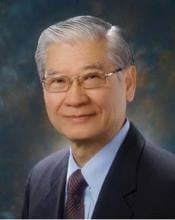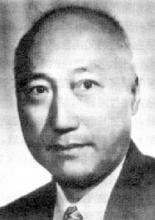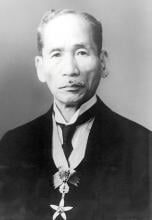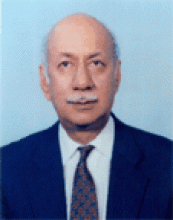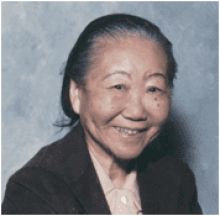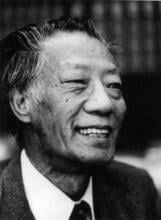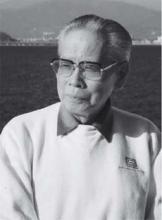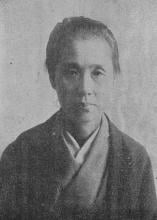Health
News
12 Aug 2022
Asia Research News monitors the latest research news in Asia. Some highlights that caught our attention this week are the potential use of fish ear bones to tell us about the seawater temperature millions of years ago, how hotter nights can lead to an increase in global mortality, and how Japanese children’s walking development differs to other countries.
06 Aug 2022
Osaka Metropolitan University scientists revealed quadriceps tendon-patellar bone (QTB) grafts as a more suitable option than bone-patellar tendon-bone (BPTB) grafts for anterior cruciate ligament (ACL) reconstruction. Examinations in human cadavers and ACL reconstruction patients showed that the QTB graft is more similar to the ACL at the femoral insertion site than the BPTB graft. The difference between graft bending angle (GBA) and an angle corresponding to GBA showed that the QTB graft bends less than the BPTB graft, suggesting a lower risk of excessive stress on the insertion site and thereby a lower probability of ACL reconstruction failures. These findings contribute to potential improvement in ACL reconstruction for knee injury patients.
05 Aug 2022
Asia Research News monitors the latest research news in Asia. Some highlights that caught our attention this week are a treasure map for tracking ant biodiversity, tattoo ink that can monitor your health, and a newly discovered super-Earth.
01 Aug 2022
A team of researchers led by Osaka University has found that mutations in the calcium channel protein RyR1 that confer susceptibility to malignant hyperthermia make the protein hypersensitive to heat, which triggers excessive calcium release from the endoplasmic reticulum. Clarifying the mechanism by which calcium release is accelerated at an elevated temperature in patients with malignant hyperthermia may also provide important insight into how exertional heat stroke occurs under extreme environmental conditions.
29 Jul 2022
Asia Research News monitors the latest research news in Asia. Some highlights that caught our attention this week are the discovery of an ancient palace that could be connected to Genghis Khan, the joy of letting your mind wander, and a wound dressing made from frog skin that promotes healing.
28 Jul 2022
Osaka University researchers identified a specific subpopulation of cells in the thymus that are significantly involved in cases of thymus tumor called thymoma in patients that also have an autoimmune disease called myasthenia gravis. These thymic epithelial cells express high levels of certain neuromuscular molecules that, together with some immune cell abnormalities, cause the body to attack its own cells. The molecular details uncovered in this study may be the key for novel therapeutic development.
26 Jul 2022
A research group led by Associate Professor Kazuki Uemura of the Graduate School of Rehabilitation Science, Osaka Metropolitan University conducted a cross-sectional study, using GPS and accelerometers, of 133 elderly people (aged 65 or older) in Toyama Prefecture to investigate their out-of-home behavior and amounts of physical activity during 14 days. The results demonstrated that the amounts of physical activity among the participants were more strongly influenced by the number of visited places (nodes) than by out-of-home time. This suggests that diversity, not just duration, of out-of-home behavior may be important when encouraging the elderly to go out to extend their life expectancy.
25 Jul 2022
A key molecule for cancer metastasis has been identified as a molecule already known for its involvement in cardiovascular disease, suggesting a possible treatment approach for both diseases simultaneously.
22 Jul 2022
The World Health Organization (WHO) welcomes the launch by Gavi, the Vaccine Alliance, of the landmark opportunity for countries to apply for funding to introduce, or further roll-out, the RTS,S/AS01 (RTS,S) malaria vaccine.
19 Jul 2022
The hypothalamic-pituitary-adrenal (HPA) and parasympathetic nervous systems have been reported to play important roles in regulating emotion and coping with stress. But their direct relationship with psychological resilience remains unclear. These biophysiological features should be considered together with traditional psychometric properties to study resilience more comprehensively.
19 Jul 2022
Saliva and oral cells are important routes for transmission and infection by the novel coronavirus COVID-19. A research group led by Associate Professor Misako Matsubara and Specially Appointed Professor Katsutoshi Yoshizato of Osaka Metropolitan University hypothesized that the body's innate immune system may protect against SARS-CoV-2 infection. The onset and severity of COVID-19 are age-dependent, as are parts of the innate immune system like saliva production and quality, which are significantly reduced in the elderly. They found that saliva from healthy individuals prevented the binding of the SARS-CoV-2 spike protein S1 on the viral envelope to the angiotensin-converting enzyme 2 (ACE2) receptor present on the plasma membrane of human cells in a concentration-dependent manner.
15 Jul 2022
Asia Research News monitors the latest research news in Asia. Some highlights that caught our attention this week are a robotic fish that can eat up microplastics, a bioinformatic platform that can test the efficacy of vaccines against COVID, and a new method of removing phosphorus from water using bacteria.
15 Jul 2022
Cultured human skeletal muscle cells infused with serum from hibernating bears exhibited “muscle gain” confirming that these creatures’ ability to avoid muscular damage despite months of inactivity is in their blood.
15 Jul 2022
A research group led by Dr. Soichi Sano, a specially appointed lecturer in the Department of Cardiovascular Medicine, Graduate School of Medicine, Osaka Metropolitan University, revealed that men with hematopoietic mosaic loss of Y chromosome (mLOY) — meaning men with an increase, in the blood, of cells that have lost the male sex chromosome — have a worse prognosis for heart failure due to fibrosis progression in the heart. Furthermore, in experiments using mice, which, like humans, have an increased mortality rate with age, they found that the presence of mLOY causes overproduction of fibrosis-promoting substances, which leads to the progression of cardiac fibrosis, a mechanism directly related to a worse prognosis for heart failure.
15 Jul 2022
Fresh vegetables in vinegar, similar to pickles, are a perfect side dish, commonly served with Japanese cooking. One traditional side dish called sunomono, a cool cucumber or seaweed salad, provided a unique opportunity as a source of dietary vinegar. This new observational study from Osaka Metropolitan University noted that men over 40 who eat sunomono at least once a month were significantly more likely to be in lower blood pressure categories.
12 Jul 2022
Osaka University researchers identified a novel mechanism by which expression of the tumor suppressor p53 paradoxically promotes liver cancer development in patients with chronic liver disease. By generating a mouse model with constant p53 expression in its liver cells, the team observed increased numbers of hepatic progenitor cells (HPCs) and liver cancer incidence. These HPCs could induce cancer when injected into certain mice. This did not occur with p53 deleted, demonstrating its critical significance.
11 Jul 2022
A novel molecular pathway involving cell signalling proteins in the brain may explain how stress affects neuropsychiatric lupus with diffuse neuropsychological manifestations.
11 Jul 2022
Researchers from Osaka University have shown that the oncogene-encoded molecule Src is responsible for epithelial cells developing invasive potential and overcoming the normal cellular defense of apical extrusion, but only when Src is located in lipid rafts in the cell membrane. Src is recruited and activated into lipid rafts by a molecule called CDCP1, which forms a molecular scaffold within the lipid rafts. CDCP1 could therefore be a promising new drug target for early-stage cancers.
08 Jul 2022
Asia Research News monitors the latest research news in Asia. Some highlights that caught our attention this week are zero-waste poultry processing that can boost lab-grown meat, residential facilities made for low-gravity environments, and new methods of cloning cells.
05 Jul 2022
23 Gold awarded at MTE 2022: COVID-19 International Innovation Awards and Advanced Healthcare & Life Sciences International Innovation Awards
04 Jul 2022
Researchers from Osaka University have described a case of clinically typical Parkinson’s disease with unusual changes in the brain. As well as the expected findings of cell loss and inflammation in disease-related brain regions, there were accumulations of the protein TDP-43 instead of the usual alpha-synuclein inclusions. This report suggests that TDP-43 accumulation can cause Parkinson’s disease-like symptoms and brain changes, which may be important for developing new treatments for this currently uncurable disease.
01 Jul 2022
Specialised physician training, nurse-led motivational conversations and follow-up with patients, and subsidy on combination medication significantly lowered BP among patients with uncontrolled hypertension, according to findings from Singapore.
29 Jun 2022
The skin’s top layer contains a diverse set of hundreds of lipid molecules called ceramides with varying chain lengths that play a vital role in its barrier function.
28 Jun 2022
I am pleased to announce that a Regular Issue, JUL 2022 of the Journal of Humanities & Social Sciences Research, Vol. 4 (1) Jul. 2022 has been published ahead of time on 15 Jun 2022 and is now live at the Journal’s webpage. Explore this Issue at https://www.horizon-jhssr.com/current-issue.php
28 Jun 2022
Chula Engineering and Chula Medicine co-invent an innovative device for a rapid and accurate gastrointestinal cancer detection hoping to foster preventive medicine and reduce the number of cancer patients.

28 Jun 2022
Hokkaido University (Location: Sapporo, Hokkaido, Japan) and NEC Corporation (NEC; TSE: 6701) have concluded a collaborative agreement to promote the realization of a “safe and secure society through spatial sensing" that helps to prevent the spread of illness.
24 Jun 2022
Asia Research News monitors the latest research news in Asia. Some highlights that caught our attention this week are using your breath to unlock your phone, the first successful launch of a Korean rocket, and the oldest bellybutton to date.
24 Jun 2022
Automation in disease diagnosis is reliant on deep learning models that can accurately and efficiently identify measurements of tumors, tissue volume, or other sorts of abnormalities. Now, researchers from Tohoku University have unveiled a new, resource-light model capable of identifying many common eye diseases.
22 Jun 2022
The formation of cell membrane pores is a major mechanism by which cancer-inducing proteins are released and hasten tumor development in nonalcoholic steatohepatitis-associated liver cancer.
Events
Sorry, no events coming up for this topic.
Researchers
Sorry, no researchers coming up for this topic.
- « first
- ‹ previous
- 1
- 2
- 3
- 4
Giants in history
Chinese biochemist Chi Che Wang (1894 - 1979), one of the first Chinese women to study abroad, advanced to prominent research positions at American institutions including the University of Chicago and the Northwestern University Medical School.
Ruby Sakae Hirose (1904 – 1960) was a Japanese-American scientist whose research contributed significantly to our understanding of blood clotting, allergies and cancer.
Flora Zaibun Majid ( 1939–2018) was an accomplished Bangladeshi researcher in botany and nutrition science and the first female chairperson of the Bangladesh Council of Scientific and Industrial Research.
Iranian physician and bacteriologist Azar Andami (8 December 1926 – 19 August 1984) developed a cholera vaccine to combat an outbreak that swept through the Middle East, India, Southeast Asia, and Africa in 1937.
Irene Ayako Uchida’s (8 April 1917 – 30 July 2013) strides to understand genetic diseases such as Down syndrome paved the way for early screening of chromosomal abnormalities in foetuses.
Baron Kitasato Shibasaburo (29 January 1856 – 13 June 1931) was a Japanese physician and bacteriologist whose work led to a new understanding of preventing and treating tetanus, diphtheria and anthrax.
Maggie Lim (5 January 1913 – November 1995) was a Singaporean physician who promoted family planning and expanded the access to clinics to improve the quality of life for mothers and children in Singapore’s early days.
By isolating soil microorganisms and studying the compounds they produce, Satoshi Omura (born 1935) discovered almost 500 organic compounds with unique properties that were produced by these microorganisms, including many new antibiotics.
The founder of the Adyar Cancer Institute in India, Muthulakshmi Reddy (30 July 1886 – 22 July 1968), fought to uplift women and girls from impoverished situations.
Chinese-American virologist and molecular biologist Flossie Wong-Staal (27 August 1946 – 8 July 2020) was the first scientist to clone HIV and determine the function of its genes.
Maharani Chakravorty (1937 – 2015) was one of India’s earliest molecular biologists whose research paved the way for advances in the treatment of bacterial and viral infections.
Archana Sharma (16 February 1932 - 14 January 2008) conducted research into plant and human genetics that expanded the understanding of both botany and human health. In relation to botany, she uncovered the means by which asexually-reproducing plants evolve into new species.
The first Thai woman to receive a degree in medicine, Margaret Lin Xavier (29 May 1898 – 6 December 1932), is best remembered for her compassion towards her less privileged patients.
In 1915, pathologist Katsusaburo Yamagiwa and his research assistant Koichi Ichikawa became the first to prove that chronic exposure to chemicals can cause cancer.
Filipino chemist and pharmacist Manuel A. Zamora (29 March 1870 – 9 July 1929) is best remembered for his discovery of the tiki-tiki formula to combat beriberi, a disease caused by Vitamin B1 deficiency.
After witnessing death and suffering as a youth in his home village during World War II, Nguyễn Tài Thu (6 April 1931 – 14 February 2021) set his sights on alleviating pain by becoming a doctor. After studying Traditional Chinese Medicine in China in the 1950s, Thu returned to Vietnam to serve in military hospitals. Eventually, he became the country’s foremost practitioner of acupuncture, a technique he first learned by inserting needles into himself.
David T. Wong (born 1936) is a Hong Kong-born American neuroscientist who is best known for discovering the antidepressant drug fluoxetine, better known as Prozac.
Indian organic chemist Asima Chatterjee (1917 to 2006) studied the medicinal properties of plant products, especially compounds known as vinca alkaloids.
Hsien Wu (24 November 1893 – 8 August 1959) is widely regarded as the founder of biochemistry and nutrition science in China. He was the first to propose that protein denaturation was caused by the unfolding of the protein, instead of chemical alteration.
Umetaro Suzuki (7 April 1874 – 20 September 1943) was a Japanese scientist best remembered for his research on beriberi, a disease caused by vitamin B1 deficiency, characterized by limb stiffness, paralysis and pain.
Syed Qasim Mehdi (13 February 1941 – 28 September 2016) was a Pakistani molecular biologist who was a founding member of the Human Genome Diversity Project (HGDP), which assessed human diversity by studying human migration, mutation rates, relationships between different populations, genes involved in height and selective pressure.
Tsai-Fan Yu (1911 – 2 March 2007) was a Chinese-American physician and researcher who was the first female full professor at Mount Sinai School of Medicine. She discovered that gout, a condition characterized by the painful inflammation of joints, was caused by elevated levels of uric acid in the bloodstream.
Min Chueh Chang (10 October 1908 – 5 June 1991) was a Chinese-American biologist who studied fertilization in mammalian reproduction.
A Japanese surgeon, Tetsuzo Akutsu (20 August 1922 – 9 August 2007) built the first artificial heart capable of keeping an animal alive.
Ogino Ginko (3 March 1851 – 23 June 1913) was the first registered female doctor to practise modern medicine in Japan.


